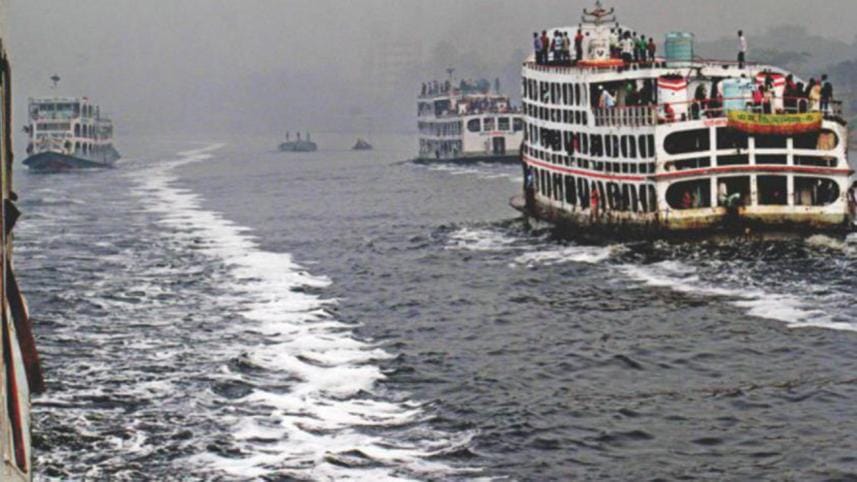What are we doing to save our water sources?

Various reports on the occasion of World Water Day, observed on March 22, have brought the terrible foreboding of a scenario in which we will literally run out of water. For Bangladesh, the urgency of conserving our water bodies could not be more critical. Dhaka, for instance, is practically losing all its rivers—Buriganga, Sitalakhya, Balu and Turag—to unprecedented pollution and indiscriminate encroachment. Despite government efforts to clean up the rivers and remove their illegal filling in, things are getting worse rather than better.
Untreated human waste, heavy metals, toxic chemicals are indiscriminately dumped into the rivers, making the water hazardous to drink. Tanneries, textiles and other industries without effluent treatment plants have poisoned our rivers. And all this has happened over the years with the authorities responsible being well aware. The results are frightening enough: WHO and Unicef have found that four million people in Bangladesh lack access to safe water and 85 million lack improved sanitation. The deaths of 2,000 under-five children every year from diarrhoea after consuming contaminated water are the result.
Meanwhile, the ground water table in Dhaka city is being depleted to dangerous levels as surface water becomes unusable in many areas.
So what are we going to do about the impending crisis ahead, the signs of which are already manifesting themselves? Experts have cried themselves hoarse stating that river grabbing and pollution of rivers and wetlands must be completely stopped so that they can be restored to their original state. The government must realise that ad hoc measures to remove illegal structures in and around rivers will not work unless there is a political will to adopt a zero tolerance regarding encroachment. We have seen how unscrupulous groups with political connections have managed to usurp portions of rivers and other water bodies, despite the laws and regardless of government drives to remove illegal occupation. The authorities must enforce the requirement of mandatory effluent plants for all industries as well as the ban on dumping toxic chemicals. The sewerage coverage by Dhaka Water Supply and Sewerage Authority (Wasa) must be immediately expanded to cover the entire city. Awareness campaigns to sensitise people to stop wasting water during household use have to be initiated.
Unless we take such immediate steps to protect our water sources, we will be looking at a very frightening future.



 For all latest news, follow The Daily Star's Google News channel.
For all latest news, follow The Daily Star's Google News channel.
Comments